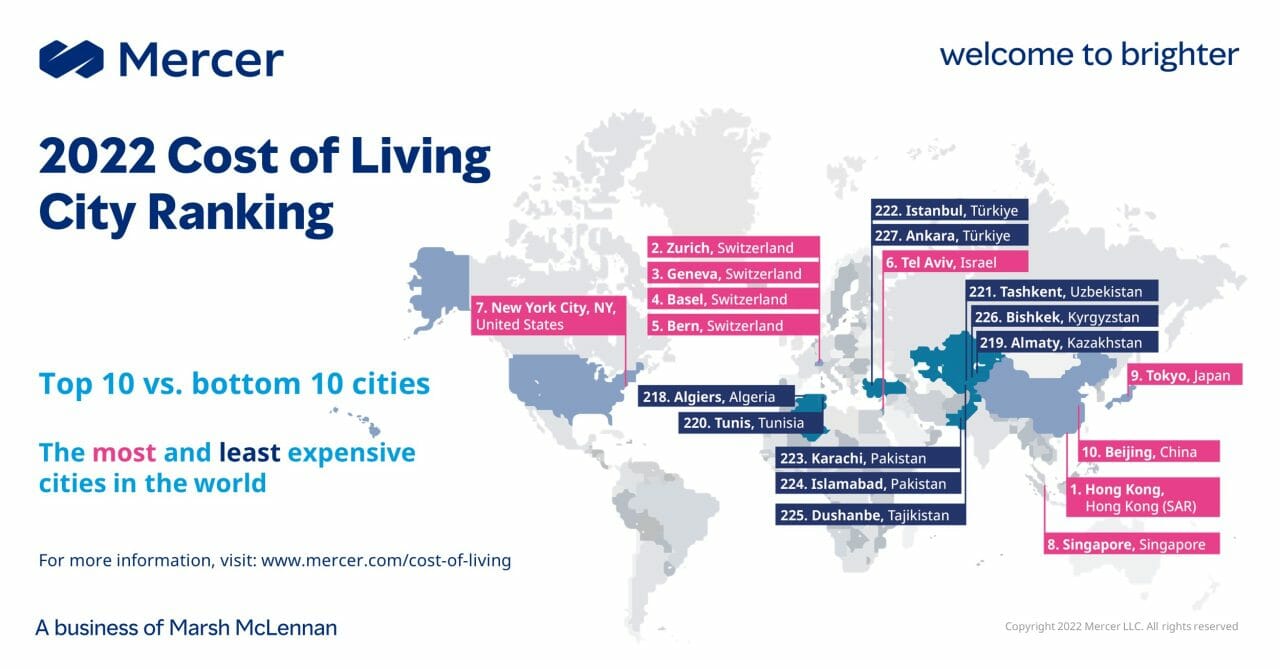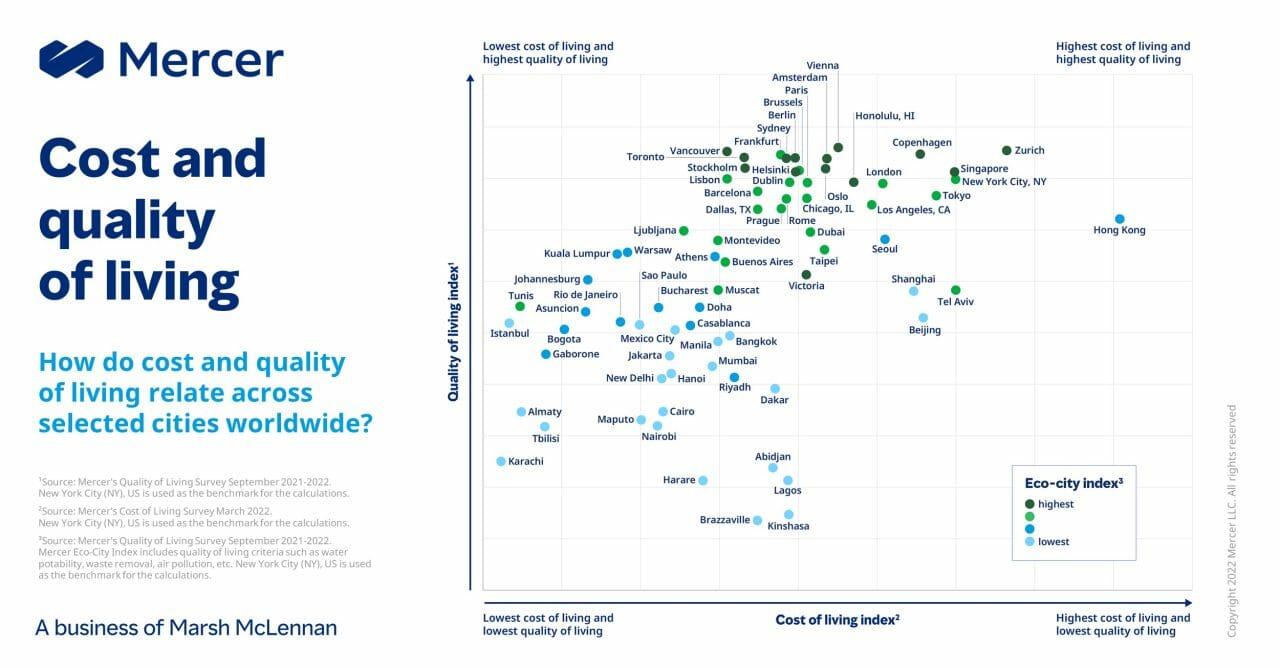Asia dominated the world’s most expensive city rankings, with Hong Kong SAR taking top spot as the costliest place for employees working abroad, in Mercer’s 2022 Cost of Living survey.
Four of the cities in the top 10 are located in Asia, including Hong Kong SAR, Singapore (8th), Tokyo (9th) and Beijing (10th).
Four cities in Switzerland – Zurich, Geneva, Basel and Bern – ranked second to fifth respectively, along with Tel Aviv (6th) in Israel and New York (7th) in the United States rounded off the Top 10 list. This year’s ranking includes 227 cities across five continents, comparing the cost of more than 200 items in each location in March 2022. To stay up-to-date with the spending patterns of the expatriate workforce, Mercer revamped its Cost of Living methodology this year with new items such as smartwatches, tablet computers and smartphones added to the basket and non-relevant items such as music CDs and video
movie rentals removed.
Tracey Ma, Regional Mobility Leader, Asia Pacific, said, “Despite the relatively lower inflation in Asia compared to the rest of the world, high prices and strong currencies with the exception of Japan and Korea, continue to propel Asia as one of the most expensive regions for international employees.
“In the past months, the strength of the Chinese Yuan has also made Mainland China pricier to live in. Six of the main cities – Beijing, Shanghai, Shenzhen, Guangzhou, Qingdao and Nanjing – are among the top 10 most expensive cities in Asia. In contrast, Japanese and Korean cities have become relatively more affordable due to a weaker Japanese yen and Korean won.”
In recent years, exchange rate changes have had more effect on cost-of-living indexes than inflation. However, this is no longer the case in 2022 due to rising inflation in developed economies. As travel and international mobility resumes, companies now face the challenge of ensuring the spending power of mobile employees are not affected.
In addition to cost of living data, mobility research conducted by Mercer and the learnings from Mercer’s work with clients reflects that the impact of COVID-19, the crisis in Ukraine, exchange rate variations and widespread inflation are having a material impact employees’ pay and savings. This can have serious consequences for employers in the global battle for talent.
Ms Ma said, “International assignment patterns are evolving faster than before. With the rise of remote and flexible work, companies need to rethink their approach to managing a globally distributed workforce with an optimized mobility program which aligns with the business strategic planning and achieve both cost efficiency, compliance and talent attraction. More companies are adopting the local-plus compensation approach to pay their foreign employees and increasingly, mobility programs are utilized as tools for companies to develop their high potential talent, rather than support mechanisms to make up for talent shortages in certain areas within the organization.”
“We’ve also observed a significant decrease of inbound international assignments into Asia in the past 18 months. Talent shortages, especially for highly-skilled IT professionals, have become an issue for some countries, with the rapid adoption of technology and digitalization.”











